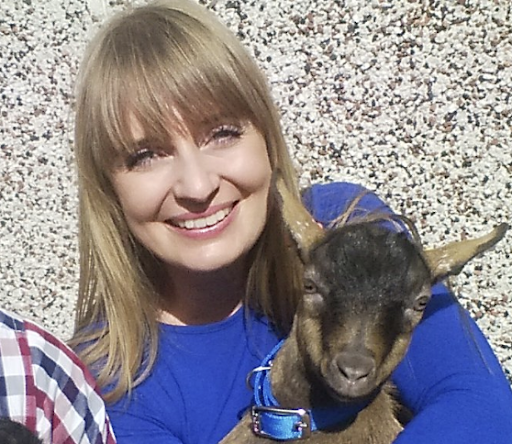Why does my cat sleep by my head? Here are 10 heart-warming reasons, according to an expert
Ever wondered, 'Why does my cat sleep by my head?' From seeking warmth to showing affection, discover the charming reasons cats prefer this spot
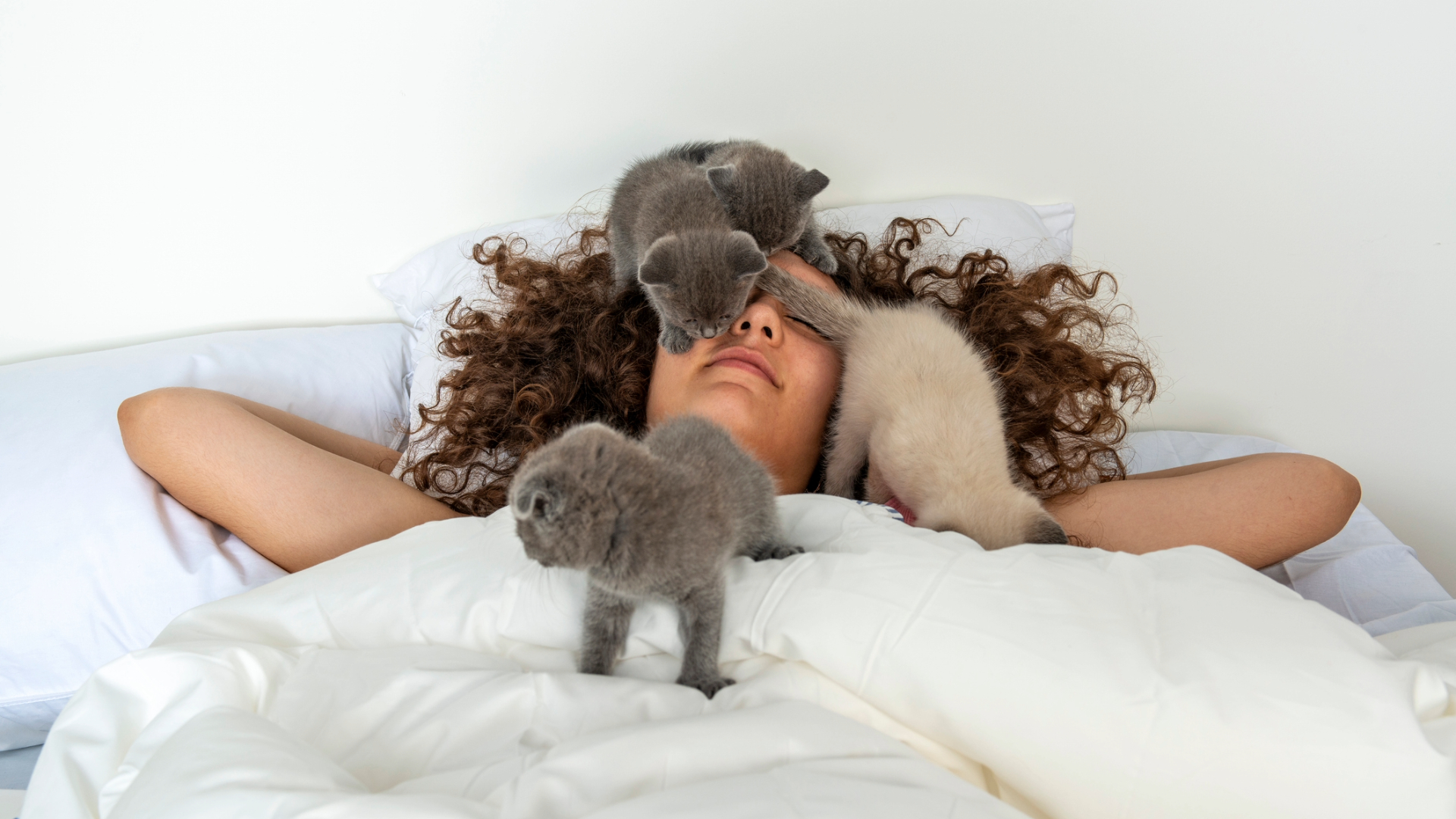
Why does my cat sleep by my head? Many cat owners wonder about this peculiar yet endearing habit. Cats are fascinating creatures whose behaviors are deeply rooted in both nature and nurture. Understanding why your cat exhibits such tendencies not only strengthens your bond with them, but also provides insights into their well-being.
I'm a vet with over 13 years of experience and have explained the reasons behind your cat’s preference for sleeping near your head. From biological instincts to emotional connections, read on to uncover the heart-warming reasons why they choose this specific spot and what it says about their relationship with you.
If you want to create an even cozier sleeping space for your furry friend, check out our guide to the best cat beds.
Why does my cat sleep by my head?
Cats are known for their peculiar sleeping habits, often choosing the strangest places to doze off. One common behavior is their tendency to sleep on or near their owner’s head. Here are some reasons why your feline friend might be drawn to your noggin:
1. Seeking warmth
Human heads radiate consistent warmth, especially during sleep. Cats are heat-seekers by nature, and a hot head offers a snug and cozy spot to snuggle. That's why they also enjoy snoozing on the best heated pet beds.
2. Smell of familiarity
Cats find comfort in their owner’s scent, which is strongest around their hair and the pillow they sleep on. This reassuring smell draws them to this area.
3. Safety and trust
Sleeping close to their owner’s head can indicate that a cat feels safest near them. Since cats are most vulnerable while sleeping, this behavior shows they trust their owner to protect them.
Get the best advice, tips and top tech for your beloved Pets
4. Affection and bonding
By sleeping close to their owner’s head, cats can reinforce the bond they share with them. It’s their way of showing love and loyalty.
5. Instinctive behavior
In the wild, cats often sleep in elevated or strategic positions to stay safe. Choosing their owner’s head – a high, secure area – may reflect this natural instinct.
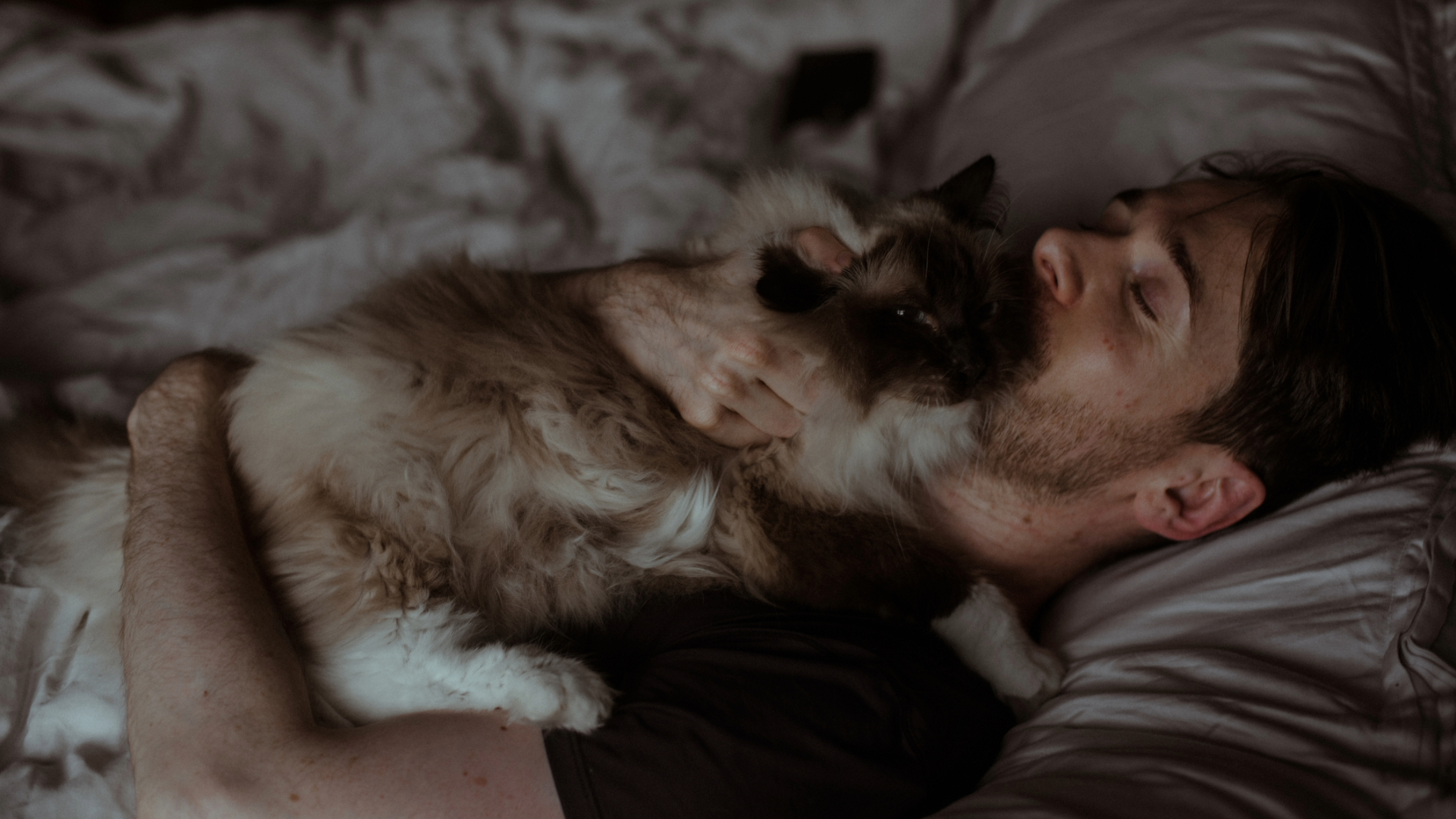
6. Avoiding movement
An owner’s head is less likely to move around compared to their arms or legs. Cats value stability while they rest, so this spot feels more predictable and they are less likely to have their precious slumber disturbed.
7. Close proximity
Sleeping by their owner’s head enables cats to keep an eye on them while still resting comfortably.
8. Comfort
Cats often associate sleeping near their owner’s head with the comforting huddling behavior of kittens.
9. Soft place
Owners usually sleep with their head on a soft pillow, this spot becomes an irresistibly plush place to nap.
10. Easy access
Clever cats may sleep by their owner’s head for convenient access—whether to nudge them awake for the best cat food or demand attention.
Cheshire & Wain Cat Cloud Bed
If you enjoy sleeping next to your cat, but hate the hairy sheets that come with it, our Staff Writer Megan Milstead recommends this bed. She uses it as a topper, which gives her cat a comfortable spot to snooze next to her - without sacrificing clean sheets!
Do cats sleep with their favorite person?
In most households, cats develop a favorite person. They tend to gravitate toward this individual for companionship, comfort, and affection. Sleeping close to their favorite human – especially near their head – is a testament to the trust and bond they share.
Why do cats choose a favorite person?
- Positive interactions: Cats are more likely to bond with people who provide positive experiences, such as feeding, petting, or playing.
- Scent: Cats have a heightened sense of smell and may be drawn to individuals whose scent they find comforting.
- Personality: Cats often align themselves with people whose personalities match their own – whether playful, calm, or nurturing.
- Routine: Cats thrive on consistency. If one person consistently feeds, grooms, or plays with them with the best cat toys, they are likely to form a deeper attachment.
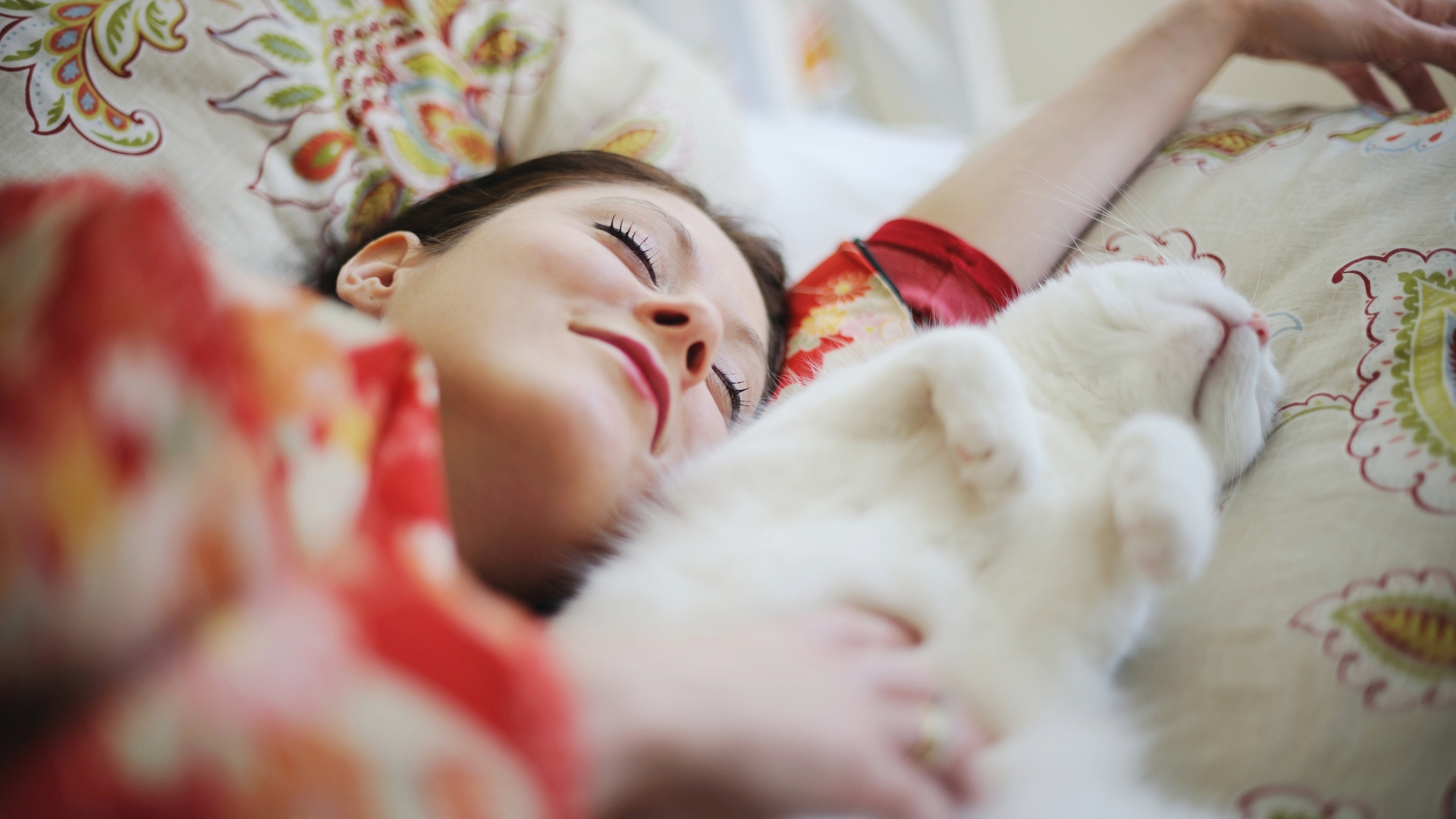
What does it mean when a cat sleeps by your head vs feet?
The position your cat chooses to sleep in offers clues about their preferences and feelings:
- By your head: This position signals trust, affection, and a desire for warmth. It’s also closer to your scent, which they find comforting.
- By your feet: Cats that sleep near your feet often seek a balance of closeness and independence. This spot allows them to stay near you while keeping their personal space. It’s also a more practical choice if they’re cautious about sudden movements and wish to retreat rapidly.
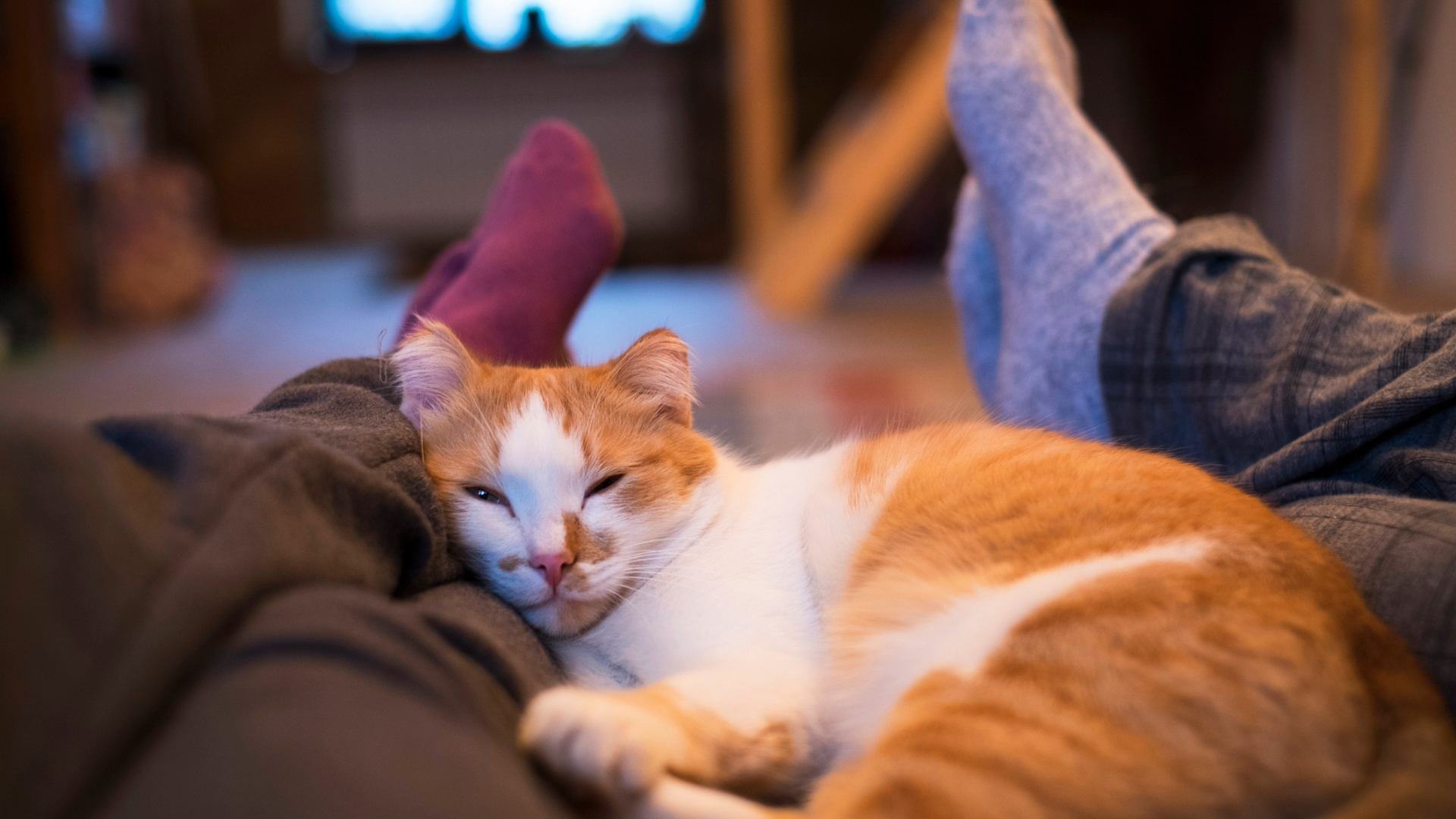
Whether your cat sleeps on your chest, in between your legs, or on your head and feet, or somewhere else, these behaviors show they value your presence.
Beyond their owner’s body, cats often gravitate to warm places like sunny windowsills, cozy blankets, or even freshly laundered clothes. Boxes and enclosed spaces are also favorite sleeping spots, as these provide a sense of security and mimic the small dens they would seek out in the wild.
Some cats prefer elevated surfaces like shelves or the best cat trees, offering both a strategic vantage point and safety. Others may snuggle across keyboards or books, seeking closeness and attention. Wherever they rest, a cat’s sleeping choice often reflects their need for comfort, warmth, and a sense of safety. Each cat has its own unique way of expressing love and trust.
Want to learn more about feline sleeping habits? Discover the sleepiest cat breeds.
Emma Chandley is a vet with 14 years of experience and has a keen interest in surgery. After graduating from the Royal Vet College in London in 2011, she achieved a postgraduate certificate in small animal surgery from the British Small Animal Veterinary Association and Nottingham Trent University. She was then awarded advanced practitioner status in the same discipline by The Royal College of Veterinary Surgeons. She has a black Labrador and two pygmy goats at home.

